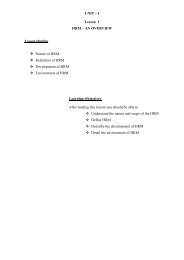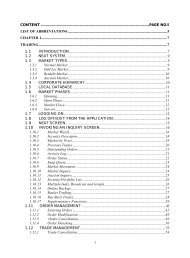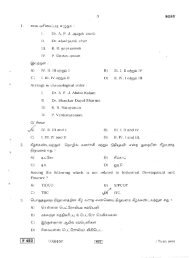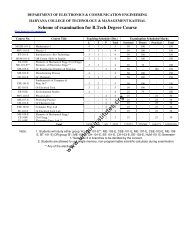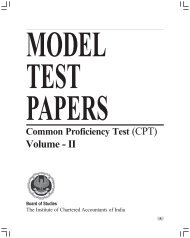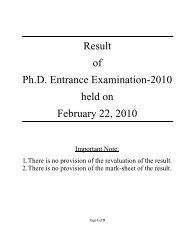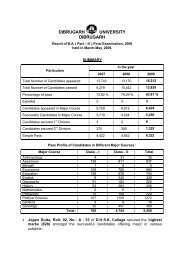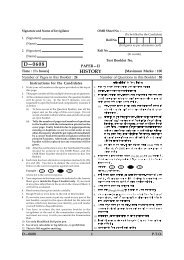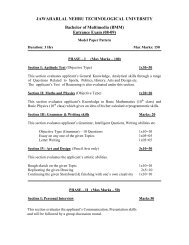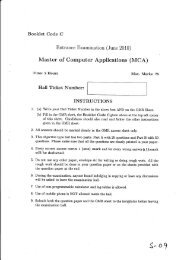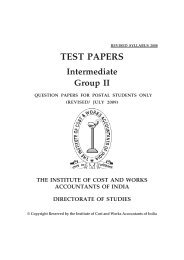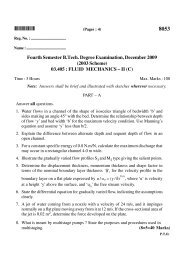Document file:///D|/Export1/www.netlibrary.com/nlreader/nlreader.dll ...
Document file:///D|/Export1/www.netlibrary.com/nlreader/nlreader.dll ...
Document file:///D|/Export1/www.netlibrary.com/nlreader/nlreader.dll ...
Create successful ePaper yourself
Turn your PDF publications into a flip-book with our unique Google optimized e-Paper software.
<strong>Document</strong><br />
Page 75<br />
$20 bills don't lie in plain view for very long, and every sale is also a purchase.) When one sets out to<br />
make a formal mathematical model, these rough principles usually be<strong>com</strong>e the more exact ideas of<br />
maximization (of something) and equilibrium (in some sense). It is, however, a good idea always to<br />
keep the looser statement in mind, for two opposing reasons to remind yourself not to take any particular<br />
mathematical formalization too seriously, but also to remind yourself that the basic principles of<br />
mainstream economics are not at all silly or unreasonable.<br />
What we do when we construct an economic model is to try to use those two principles to cut through<br />
the <strong>com</strong>plexities of a situation. And the remarkable thing is how often that effort succeeds. Thinking<br />
carefully about how self-interested individuals would act in a particular situation, and how these actions<br />
would interact, can often produce powerful and surprising insights.<br />
One cannot give a better example than the von Thünen model. To someone innocent of that model, the<br />
question of how land should be allocated among a variety of crops with different transportation costs<br />
and yields might seem a very <strong>com</strong>plicated problem, whose solution requires a great deal of knowledge<br />
about the particulars. The question of how that land would actually be allocated in the marketplace<br />
might seem an entirely different problem, one which would require some historical and institutional<br />
knowledge of the particular society under discussion. And as for the question of how much the owners<br />
of land receive well, that's surely a matter of power and class struggle, isn't it? Yet the basic principles of<br />
economics tell us that there is an unexpected order in the out<strong>com</strong>e, which is quite independent of the<br />
details. Obvious opportunities will not go unexploited: a farmer will bid away land from another<br />
<strong>file</strong>:///<strong>D|</strong>/Export2/<strong>www</strong>.<strong>netlibrary</strong>.<strong>com</strong>/<strong>nlreader</strong>/<strong>nlreader</strong>.<strong>dll</strong>@bookid=409&<strong>file</strong>name=page_75.html [4/18/2007 10:30:32 AM]



